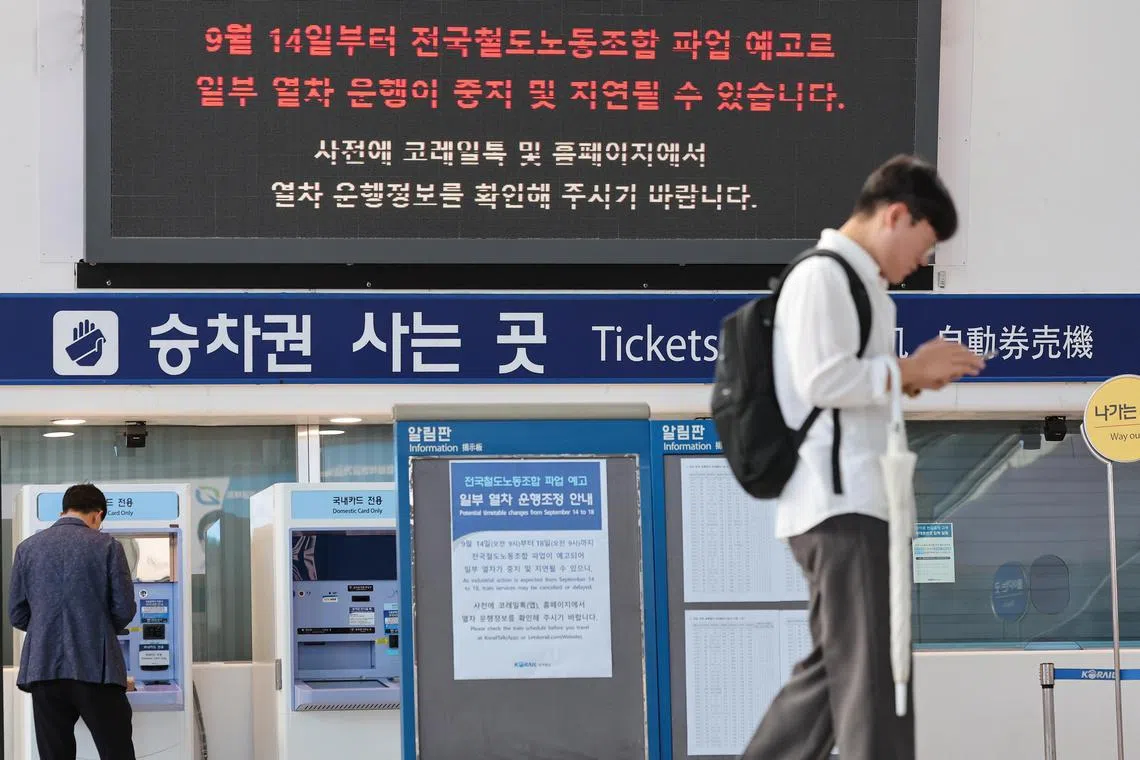South Korean rail workers launch first strike in four years
Sign up now: Get insights on Asia's fast-moving developments

The strike, the first since November 2019, came after a collapse of negotiations late on Wednesday between the union and Korail.
PHOTO: EPA-EFE
SEOUL – Some 13,000 unionised rail workers in South Korea launched a four-day strike on Thursday, their first such action in four years, which could cut passenger and cargo train operations by up to 60 per cent amid soaring seasonal demand.
The Korean Railway Workers’ Union demanded improved pay and working conditions and an expansion of the Korea Train Express (KTX) bullet train services to include lucrative routes such as those in southern Seoul. Currently, these routes are exclusive to the other high-speed rail service operating in Seoul, the Super Rapid Train (SRT) service operated by SR Corp.
A major impact on businesses is unlikely as South Korea’s key export items, such as semiconductors and cars, do not rely on rail services. However, officials in some sectors, such as cement, steel and petrochemicals, warned against a prolonged walkout.
The strike, the first since November 2019, came after a collapse of negotiations late on Wednesday between the union, the Ministry of Land, Infrastructure and Transport and state-run train operator Korea Railroad Corp (Korail).
The work stoppage is due to end at 9am (8am Singapore time) next Monday.
The union accused the government of causing public confusion and seat shortages by splitting profitable routes between Korail and SR Corp. The union also said that KTX and SRT routes should be integrated to cut costs and boost efficiency.
The Transport Ministry dismissed the union’s claims, and the strike, as “illicit,” vowing to take stern action.
Korail chief Han Moon-hee apologised for the inconvenience caused to passengers by the strike, and urged workers to return to work.
“This strike has no legitimacy because it targets government policy issues that cannot be resolved through negotiations,” Mr Han told a news conference.
The ministry estimated that cargo trains would run at 21 per cent to 47 per cent of their normal capacity.
Korail said it would operate about 68 per cent of the KTX routes and 75 per cent of metro subway services outside the morning rush hours.
According to the Korea Cement Association, rail services account for 40 per cent of cement transport, and any protracted strike could affect companies during the peak building season in autumn.
An official from a cement company said the company had prepared some inventory ahead of the strike, but would have to use costlier land transport options if its inventory ran out, affecting profits. REUTERS


